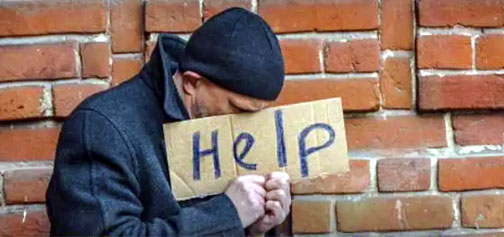Re’eh emphasizes the importance of being good to those who are not as fortunate as you. Eighteen verses – almost a whole chapter — are devoted to these commandments:
- At the end of seven years, forgive all loans made to brother Israelites
- Don’t toughen your heart or shut your hand to the needy, but give him or her enough to make up for what they don’t have. “For there will never cease to be poor people in the land; that is why I am commanding you, ‘Open your hand willingly to your poor and needy brother in your land.’”
- If you have a servant that was sold to you, release him or her after seven years. And don’t send him or her away empty handed! Give them clothing, grain and animals. Because, remember, you were servants in Egypt!
The parsha then tells us to keep Passover and eat the bread of affliction – matzah – during the holiday.
Seven weeks later, we are to make a pilgrimage to “the place your God chooses” to celebrate Shavuot. We are to “rejoice before the presence of God.” Everyone is supposed to make this pilgrimage: servants, Levites, guests, orphans and widows – the whole household.
Then there is Sukkot, another festival that everyone is to celebrate.
Food for Thought
Which of these commandments is relevant today?

